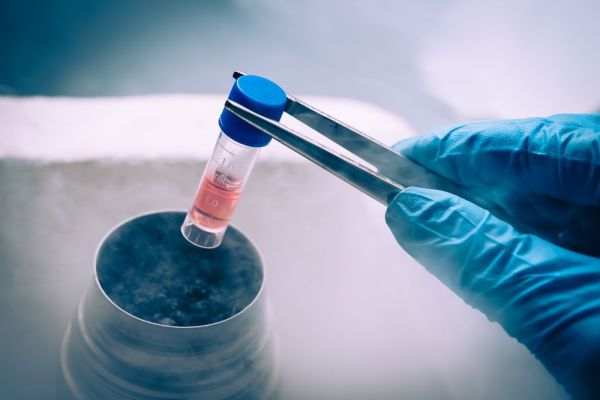Israel’s many health tech startups are attracting unprecedented interest from abroad, with multinational medical giants looking to benefit from the country’s ongoing high-tech boom. Israel’s health tech is spurred on by a global demand for innovative healthcare solutions, fueled by aging populations and struggling middle classes. Considering that life sciences alone represent nearly 50 percent of scientific research in Israel, the country has become a hub for medical and health innovation and, consequently, a target for investors.
According to a 2015 report by Israel Advanced Technology Industries, Israeli life sciences companies raised more than $1.4 billion on the NASDAQ in 2014. Out of all the 73 biotech life sciences IPOs in 2014, 7 were Israeli. Furthermore, Venture Capital (IVC) Research Center, revealed — in the same report — that $801 million was invested in 167 life sciences companies, a figure 55 percent higher than the previous year.
While multinational medical companies are busy chasing their share of the Israeli health sector by acquiring local companies, many companies, such as Abbott Labs, Philips, Carestream and Johnson & Johnson, also have set up R&D centers in the country.
Recent months have witnessed a surge of interest toward Israel’s health sector, a sign that indicates a record year for Israeli health tech.
October alone saw a number of moves that validate the claim made in the title of this article. Earlier this month, Boston Scientific Corporation (NYSE: BSX) announced that it has closed an additional round of financing with MValve Technologies Ltd., an Israeli company developing a solution to a specific heart-valve disorder.
In another major move, Swiss drugmaker Novartis (NOVN: VTX) announced that it will invest up to $15 million in Gamida Cell, an Israeli developer of stem cell therapies. In 2014, Novartis invested $35 million in the company for a 15 percent stake, in a deal that could reach $600 million.
“These events signify the ongoing trend and the hard work done by Israelis to showcase the local innovation. Today there is a trend among foreign investors to invest at an earlier stage whereas in the past they only acted only at later stages. For example, Novartis’ second investment illustrates that Israeli biotech has already established itself as a global brand. Moreover, the support from Israel’s Chief Scientist in the past has also been helpful. Now we are reaping the fruits of the work done in last years,” said Dr. Laurent Choppe, Managing Partner at Cukierman & Co. Life Sciences.
Israeli research and the level of innovation have caught the attention of the world.
In September, Johns Hopkins Technology Ventures signed a multiyear agreement with Luminox, an Israeli Health IT incubator, and during the same month, U.S. medical device company ZOLL Medical Corp. acquired Israeli company Kyma Medical Technologies Ltd., which develops technologies to measure early signs of congestive heart failure. Earlier in the month, Washington, DC-based eHealthVentures announced that it had invested in Tel Aviv-based Intendu, a platform that treats people with brain dysfunction.
According to Dr. Choppe, many multinationals have a large presence in Israel, which allows them to identify top investment targets at an early stage.
“Corporate venture funds are making more visits to Israel. This is a clear change between the present and the past. Many of these companies already had a commercial presence in Israel, but now this scope has been expanded to include close monitoring of health innovations and early stage startups in Israel,” Dr. Choppe added.
While Israel’s life sciences industry is diverse, medical devices lead the pack with 725 companies, or 53 percent of the total number. Biotech and pharma came in second with 317 companies (23 percent), with healthcare IT and digital health companies comprising 20 percent of all the life sciences companies in Israel, according to the report by Israel Advanced Technology Industries.
These major sub-sectors also have inspired the birth of startups that relate directly to the consumer side of healthcare and attempt to bridge the gap between the consumer and the available treatments.
In September, Tel Aviv-based Archimedicx launched a global online medical search engine to enable patients to find a hospital for a specific medical procedure or condition. The site currently ranks more than 300 leading hospitals across the globe per medical condition or procedure. “Our algorithm ranks leading hospitals across the world, based on specific medical procedures or conditions, and even includes hospitals that we don’t have an individual agreement with,” said Guy Klajman, CMO of Archimedicx.
Launched earlier in 2015, Tel Aviv-based Somatix has developed a filtering algorithm that enables real-time measurement of smoking and other hand-to-mouth gestures to help expedite the inclusion of preventative behavioral health methods into existing healthcare systems.
In addition to companies operating in the human health space, some Israelis are trying to conquer less saturated spaces within the health sector. PetPace developed a monitoring collar for pets, which wirelessly tracks vitals and other physical and behavioral parameters.
From human beings to pets, the country’s health and medical industry ecosystem encompasses an eclectic group of actors, from patient and health providers to device manufacturers, software companies, research and R&D centers and VCs specialized in health and medical startups.
Israeli research and the level of innovation have caught the attention of the world. Based on current trends, 2015 looks to be yet another record-breaking year for Israeli healthtech.
